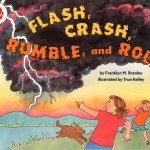
Readers & Thinkers: The 2017 Nobel Prize in Economics. Most People are Human
Posted by ludw1086 on Oct 9, 2017 in Readers & Thinkers | Comments Off on Readers & Thinkers: The 2017 Nobel Prize in Economics. Most People are HumanDear All:
Well, who won?
The Nobel prize for economic sciences for 2017 was announced today, October 9, 2017. It went to Richard Thaler.
Thaler is 72 years old and was born in East Orange, New Jersey. He obtained his BA from Case Western Reserve University and his M.A. and Ph.D. from the University of Rochester. The work that set his career as a behavioral economist was done while a professor at Cornell University. He is now a professor at the University of Chicago.
I did not think that Thaler would win the Nobel prize, even though many others did. It has mainly to do with my wondering whether behavioral economics is very obvious and whether or not it has created tools to understand the world better. I debated this a lot in my own mind when I wrote my book on crowding.
So what did this guy do to make him so Noble?
The Nobel committee wrote that the he received the prize “for his contributions to behavioral economics.”
Most economic textbooks describe individuals as rational, calculating machines. That is, they assume humans make rational decisions after carefully considering all potential outcomes of a decision. Behavioral Economics considers the “human” aspect of people’s decision making. That is, it considers the psychological and behavioral aspects to people’s decisions that may lead to outcomes that differ from what is predicted by rational decision-making theory. One way to think about behavioral economics is that it combines economics with psychology to paint a more accurate picture of the way people behave.
For example, why do some people have credit card debt and money in their bank account? A rational decision maker would realize that they are paying 15% on their credit card debt and receiving about 0% in their savings account. Thus, they would use the money in their bank account to pay down the credit card debt and be better off. Yet some individuals don’t do this. It could be because they are lazy. It could also be because they keep separate mental accounts of the credit card and the savings. Why? To act as a self-imposed discipline device. If they pay off their credit card debt, they might be worried that they will go out and use the credit card to buy more goods, thus creating more problems. It may not be rational, but it may be more reflective of the way many people behave.
One of the tools of behavioral economics is prospect theory or cumulative prospect theory developed by Daniel Kahneman and Amos Tversky. Thaler applied prospect theory to various areas in economics and finance. He described the endowment effect as a potential deviation from rational behavior. For example, if an individual is asked how much they would pay for a sweater in the store, this would be presumably the same price as they would sell the exact same sweater that they own. However, according to the endowment effect, once the person owns the sweater, departing with it, will represent a loss. Whereas, buying a sweater represents a gain. When this idea is combined with prospect theory, the individual will value the sweater he owns more than the sweater in the store. Many of us know this to be true, but we would say that the sweater has “sentimental value”. It’s very nature has changed and it is indeed more valuable. This is probably also true. However, when experiments were conducted in which individuals owned the objects for just a few minutes, they also found them to be more valuable than objects they didn’t own. This corresponds with prospect theory, in that losing something is much more painful than gaining something and thus should have a higher price.
Within academic economics and finance, Thaler was mainly known for one article with DeBondt that showed that stock prices overreact over long periods. That is, a portfolio of stocks that underperformed in the past does better than a portfolio of stocks that outperformed in the past looking forward.
To the general public, Thaler is probably more known for his book Nudge. This book summarizes the thinking in behavioral economics that because humans are guided by emotional and psychological biases, it might help to push them (“nudge”) in the right direction. To give an example, suppose the default choice for a retirement program at your job is to invest nothing. Many people might just leave this default, even though it might be worse for them. Nudge would argue to set the default for the company such that a small consistent retirement contribution is made by the employee.
So what about the Nobel choice?
When Richard Thaler visited MIT, I took a job as his research assistant for a brief period. I remember one particular incident, where Thaler brought me to the NBER and introduced me to Robert Shiller. I was young, but I remember being excited to meet Dr. Shiller.
Just a few years ago, I interviewed Thaler along with several other people for a journal. In that interview, I expressed my issues with parts of behavioral finance.
My first issue is that most of it seems obvious. That is, if you tell anyone outside academic economics that a young girl doesn’t buy a dress based on present-discounted value comparisons or that a young boy doesn’t play a computer game because he calculated the optimal work-leisure tradeoff, they would say “dah”. So while hard-line mathematical economists may have had a hard time accepting behavioral economics, I think the rest of the world already did. Although as my friend, Meir Statman, tells me, “What is obvious? The earth is round wasn’t always obvious.”
My second issue with behavioral economics is that it doesn’t offer useful tools for analysis. For example, in finance, the CAPM offers a simple way for corporations to discount earnings. Even if it has many flaws, it’s simple to use, and most corporations use it. Much of behavioral finance has been drenched in finding deviations from rational markets (i.e. anomalies). This has led to lots of empirical research and even data mining, but no tools for people to use. On a positive note, in recent years, rules-of-thumb are being used as ways to apply behavioral economics in everyday life.
In addition, from an investment perspective, many financial anomalies (deviations from rational behavior) can be used to find excess return opportunities for investors.
The Nobel Committee has two (out of 6) members associated with cognitive science and this might explain the recent interest in behavioral finance. On a coincidental note, at the 2015 AEA meetings, Richard Thaler, then President of the AEA, invited a member of the Nobel Committee, Per Stromberg, to speak about the criterion for selecting a Nobel prize winner.
So is that it?
It should always be remembered that even though Thaler did some great work to get behavioral finance in the mainstream of academics, there were many others who contributed to this field.
To start with, everyone who doubted that individuals make decisions based on complicated mathematical calculations could be considered a contributor. There were also numerous co-authors and writers. This includes Meir Statman and Hirsh Shefrin. In addition, some of my colleagues over the years have pushed the behavioral agenda as co-authors with Thaler, including Christine Jolls, Henrik Cronqvist, and Owen Lamont. Other recent contributors to the field include Rabin, Barberis, Benartzi, and Odean.
I spoke with Meir Statman this morning and he said “I’m delighted, exhilarated, and the prize was long overdue.” He said that Thaler was one of the first in this area and he happened to chance on Kahneman and Tversky’s paper and apply it. He remembers when he first heard about mental accounts, he immediately had an idea to explain Fischer Black’s dividend puzzle.
I also spoke with Hersh Shefrin and he remembers meeting Dick Thaler at Rochester and beginning the dialogue about psychology and economics. “Dick had already contacted Kahneman and Tversky in Israel and saw that economists and psychologists might be able to work together.” Hersh also acknowledged that the origins of behavioral economics went as far back as Keynes and maybe Adam Smith. “Keynes talked about behavioral economics a long time ago, but after World War II, as the field was getting formalized, the mathematical economists silenced it. I’m very happy for Dick and that we were each other’s collaborators. It enriched my life.”
For more information on the winner:
https://www.nobelprize.org/nobel_prizes/economic-sciences/laureates/2017/
From University of Chicago: http://newschicagobooth.uchicago.edu/newsroom/richard-h-thaler-wins-sveriges-riksbank-prize-economic-sciences
Congratulations to Richard Thaler and his pursuit of knowledge, and the armies of other researchers who walked with him.
Enjoy!
Ludwig
P.S. Feel free to email me your thoughts and indicate whether you wish them to remain anonymous or not.
October 9, 2017






